
System Shock is a 1994 first-person action-adventure video game developed by LookingGlass Technologies and published by Origin Systems. It was directed by Doug Church with Warren Spector serving as producer. The game is set aboard a space station in a cyberpunk vision of the year 2072. Assuming the role of a nameless security hacker, the player attempts to hinder the plans of a malevolent artificial intelligence called SHODAN.

The Sims is a social simulation video game developed by Maxis and published by Electronic Arts in 2000. The game allows players to create and control virtual people, called “Sims”, and manage their daily lives in a suburban setting. The game features an open-ended gameplay, where players can choose their own goals and objectives, and customize their Sims’ appearance, personality, skills, relationships, and environment. A series of expansion packs were also released that add new content and features to the game, such as new careers, items, locations, and scenarios.

William Ralph Wright is an American video game designer and co-founder of the game development company Maxis, which later became part of Electronic Arts. In April 2009, he left EA to run Stupid Fun Club Camp, an entertainment think tank in which Wright and EA are principal shareholders.

SimCity 4 is a city-building simulation computer game developed by Maxis, a subsidiary of Electronic Arts. The game was released in January 2003 for Microsoft Windows and in June 2003 for Mac OS X. It is the fourth major installment in the SimCity series. SimCity 4 has a single expansion pack called Rush Hour which adds features to the game. SimCity 4: Deluxe Edition contained the original game and Rush Hour combined as a single product.

SimCity 2000 is a city-building simulation video game jointly developed by Will Wright and Fred Haslam of Maxis. It is the successor to SimCity Classic and was released for Apple Macintosh and MS-DOS personal computers in 1993, after which it was released on many other platforms over the following years, such as the Sega Saturn and SNES game consoles in 1995 and the PlayStation in 1996.
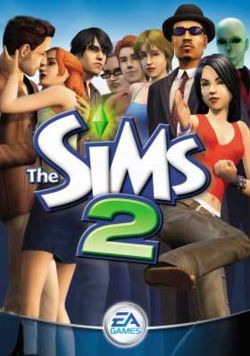
The Sims 2 is a 2004 strategic life simulation video game developed by Maxis and published by Electronic Arts. It is the second major title in The Sims series, and is the sequel to The Sims. The game was released for Microsoft Windows on September 14, 2004, and a port for MacOS was released on June 17, 2005. Eight expansion packs and nine "stuff packs" were subsequently released between 2005 and 2008. In addition, versions of The Sims 2 were released on various consoles and mobile platforms, including the Nokia Ovi Store. A sequel, The Sims 3, was released in June 2009.

FreeSpace 2 is a 1999 space combat simulation computer game developed by Volition as the sequel to Descent: FreeSpace – The Great War. It was completed ahead of schedule in less than a year, and released to very positive reviews, but the game became a commercial failure, and was described by certain critics as one of 1999's most unfairly overlooked titles.
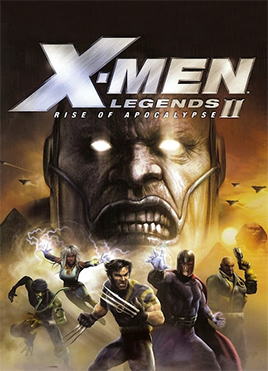
X-Men Legends II: Rise of Apocalypse is an action role-playing game developed primarily by Raven Software and published by Activision. It is the follow-up to 2004's X-Men Legends. It was released in September 2005 for the GameCube, Microsoft Windows, N-Gage, PlayStation 2, PlayStation Portable and Xbox. It is set after the events of X-Men Legends and features the mutant supervillain Apocalypse as the primary antagonist.
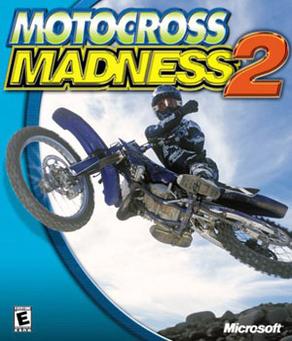
Motocross Madness 2 is a motocross racing video game that was developed by Rainbow Studios and published by Microsoft Games.
The Sims Stories is a series of video games from The Sims series released between 2007 and 2008, based on a modified version of The Sims 2 game engine. The modified game engine is optimized for play on systems with weaker specifications, such as laptops. As such, its system requirements are lower than that of The Sims 2, but it can still be played on desktops.
SimCity is an open-ended city-building video game franchise originally designed by Will Wright. The first game in the series, SimCity, was published by Maxis in 1989 and was followed by several sequels and many other spin-off "Sim" titles, including 2000's The Sims, which itself became a best-selling computer game and franchise. Maxis developed the series independently until 1997, and continued under the ownership of Electronic Arts until 2003. EA commissioned various spinoffs from other companies during the 2000s, focusing on console and mobile releases. A 2013 EA-Maxis reboot was subject to what has been described as "one of the most disastrous launches in history", which may have triggered the 2015 shutdown of Maxis Emeryville and the end of the franchise.
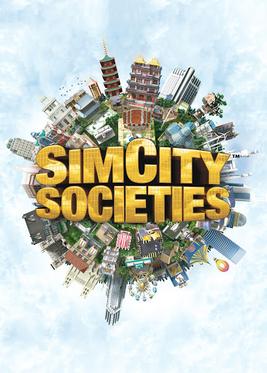
SimCity Societies is a city-building simulation video game developed by Tilted Mill Entertainment and published by Electronic Arts, and is part of the SimCity series. The gameplay is significantly different from previous SimCity titles, with a greater focus on social development. SimCity Societies was released in 2007, and received mixed reviews, with praise for the game's improved accessibility and visuals, but criticism for being oversimplified and having poor performance.

The Sims is a series of life simulation video games developed by Maxis and published by Electronic Arts. The franchise has sold nearly 200 million copies worldwide, and is one of the best-selling video game series of all time.
A space flight simulation is a genre of flight simulator video games that lets players experience space flight to varying degrees of realism. Common mechanics include space exploration, space trade and space combat.

Guitar Hero: On Tour is a series of music video games based on the Guitar Hero series for the Nintendo DS handheld game system. The series is developed by Vicarious Visions and published by Activision. Three games in the series have been released since June 2008: Guitar Hero: On Tour, Guitar Hero On Tour: Decades, and Guitar Hero On Tour: Modern Hits.

The Sims 4 is a free-to-play social simulation game developed by Maxis and published by Electronic Arts. It is the fourth major title in The Sims series, following The Sims 3 (2009). The game was released in North America on September 2, 2014, for Windows, an OS X version was released in February 2015, and PlayStation 4 and Xbox One versions were released in November 2017. The game was moved to a free-to-play model on October 18, 2022, monetized by the purchase of various paid downloadable content packs that have been developed since its release.

Synnergist is a point-and-click adventure video game developed by Vicarious Visions and published by 21st Century Entertainment for MS-DOS in 1996. It was Vicarious Visions' debut video game. The game includes "digitized actors and full motion video." It was only released in Europe.

Dark Angael is a PC video game by Vicarious Visions. It is a 2D run-and-gun shoot-'em-up action-adventure platform game released on September 29, 1997.

Tony Hawk's Pro Skater 1 + 2 is a 2020 skateboarding video game developed by Vicarious Visions and published by Activision. It was released for PlayStation 4, Windows, and Xbox One on September 4, 2020, PlayStation 5 and Xbox Series X/S on March 26, 2021, and Nintendo Switch on June 25 of the same year. It is a remake of the first two games in the Tony Hawk's series: Tony Hawk's Pro Skater (1999) and Tony Hawk's Pro Skater 2 (2000), which were originally developed by Neversoft. It is the first major console game in the series since Tony Hawk's Pro Skater 5 (2015) and is Vicarious Visions' final work as a subsidiary of Activision before it was merged into Blizzard Entertainment on January 22, 2021.
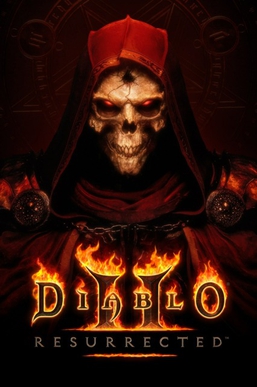
Diablo II: Resurrected is an action role-playing video game co-developed by Blizzard Entertainment and Blizzard Albany and published by Blizzard Entertainment. It is a remaster of Diablo II (2000) and its expansion Lord of Destruction (2001). The game was released for Nintendo Switch, PlayStation 4, PlayStation 5, Windows, Xbox One, and Xbox Series X and Series S on September 23, 2021.

















